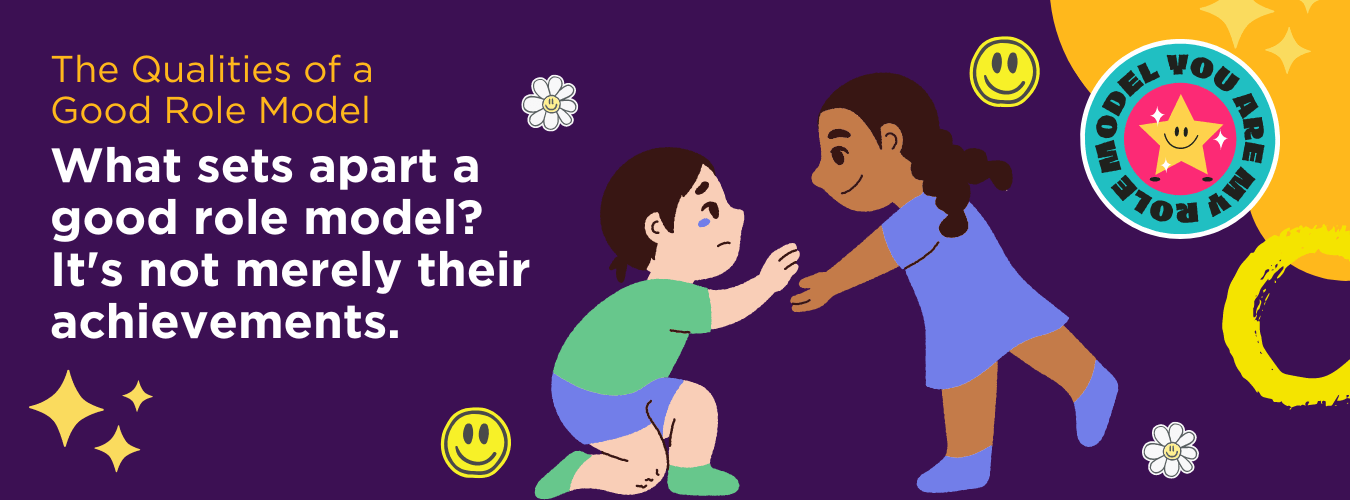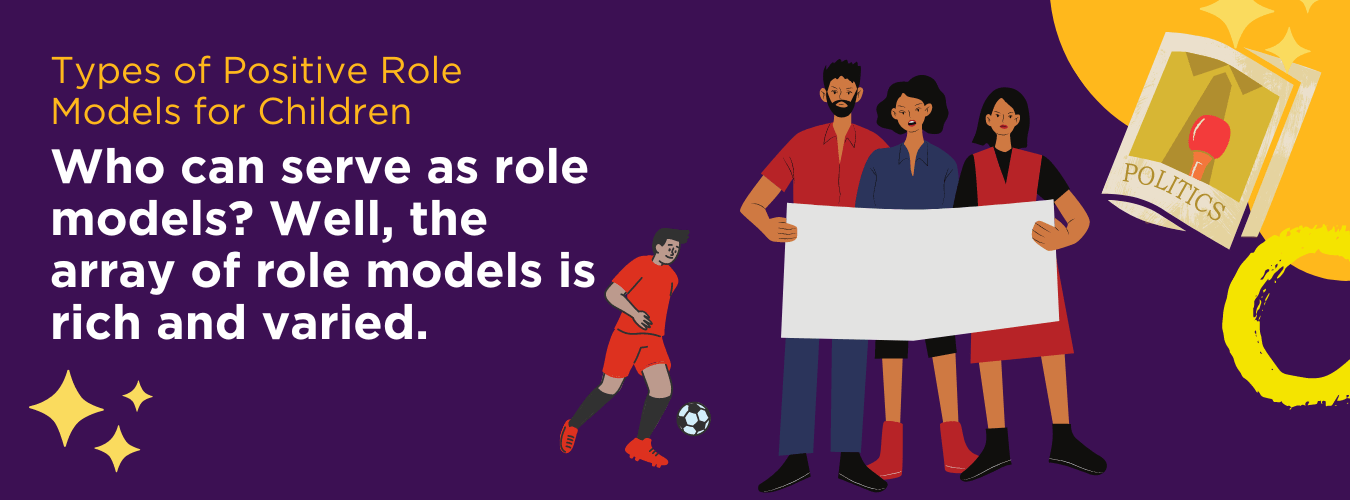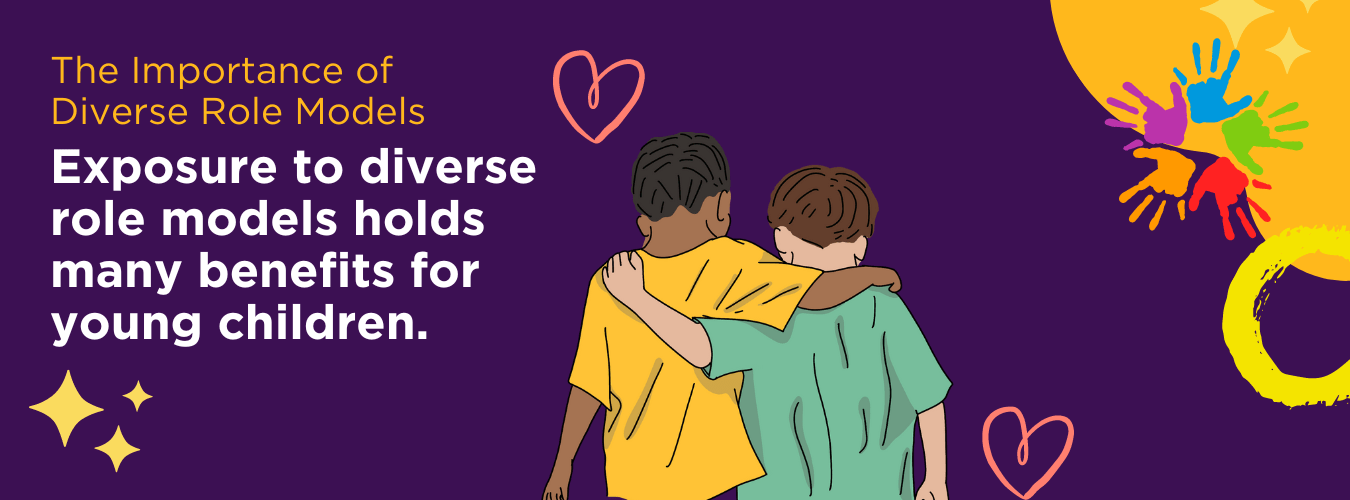Positive Role Models for Children

Role models are like beacons of light, guiding us through the complexities of everyday life together. For children, the influence of positive role models extends far beyond the classroom.
Role models are individuals, whose actions and values children admire and have the power to shape their character, values, and aspirations. In this blog, we explore the importance of role models, their defining qualities, examples of good role models and the lasting impact they can have on children’s lives.
Is your child struggling to keep up with schoolwork? Are they falling behind? Are they bored in class? Or are you looking for extension work for your child? Check out our eBook to learn more about how we help your child improve academically and build confidence through our in-centre after-school tuition.
The Qualities of a Good Role Model
What sets apart a good role model? It's not merely their achievements. It’s the qualities that define their character such as integrity, empathy, resilience, positivity, and leadership. These qualities serve as sources of inspiration, guiding children towards a path of authenticity, kindness, and success for their entire lives.

The Impact of Positive Role Models on Children
The impact of positive role models on children is profound. Positive role models contribute to the development of a child’s self-esteem and confidence. As children witness the qualities they admire in others, they begin to believe in their potential to develop that value. This confidence not only influences their academic pursuits but also encourages them to pursue their dreams with determination.
Picture a young girl, for example, encountering a role model whose qualities and actions align with their aspirations. This influence can stay with them for the rest of their lives.
Let’s take NumberWorks’nWords student Mia, for example, she aspires to become a scientist and make groundbreaking discoveries. She comes across the remarkable story of Marie Curie, a scientist who shattered gender barriers to become a Nobel Prize-winning physicist and chemist.
Mia is captivated by Marie Curie's determination, intelligence, and resilience in the face of challenges. As she delves deeper into Marie Curie's journey, she discovers that the qualities she admires in her role model align with her aspirations. This influence becomes a guiding force as Mia faces obstacles in her studies, reminding her that setbacks are stepping stones to progress.
Types of Positive Role Models for Children
Who can serve as role models? Well, the array of role models is rich and varied, offering a multitude of inspiring individuals. Historical luminaries like Sir Peter Blake and Sir Edmund Hillary can be esteemed role models, symbolising the adventurous spirit and determination to conquer new frontiers.
In the realm of leadership, figures like Jacinda Ardern and Helen Clark stand tall. Ardern's compassionate governance and Clark's trailblazing as a powerful female leader exemplify the potential for positive change in political arenas.
Sports offer us icons like Richie McCaw, Valarie Adams, and Steven Adams, each representing distinctive virtues. McCaw's dedication and leadership on the rugby field, Valarie Adams' unparalleled strength and resilience in the shot put, and Steven Adams' journey from New Zealand to the NBA, all impart invaluable life lessons.
The realm of creativity finds representation through visionaries such as Peter Jackson and Jane Campion. Jackson's filmmaking prowess showcases innovation and imagination, while Campion's cinematic achievements break barriers and shatter norms.

All of these famous role models have set clear examples of what we should always encourage, motivate and teach our children to adopt. In all of these role models a positive mindset, attitude and belief in themselves to overcome setbacks and strive to be their very best at the forefront of their decisions.
The Importance of Diverse Role Models
Diversity is a cornerstone of our world, and it's equally crucial in the realm of positive role models. Exposure to diverse role models holds many benefits for young children.
Firstly, it breaks down stereotypes and fosters inclusivity. By witnessing individuals from various backgrounds achieve greatness, children learn to appreciate and celebrate differences in our world.
Secondly, diverse role models expand children's horizons, exposing them to a world of possibilities beyond their immediate environment.
When children see individuals who share their ethnic, cultural, or gender identity succeeding, it empowers them to believe that they, too, can overcome barriers and achieve their goals. Conversely, exposure to role models from different backgrounds promotes understanding and empathy and builds bridges between communities.

Finding and Engaging with Role Models
In today's digital age, children are fortunate to have an extensive array of resources at their fingertips, allowing them to easily discover and engage with role models who can inspire and guide them.
Books, for instance, remain timeless sources of inspiration. Biographies, autobiographies, and fictional stories centred around real-life heroes offer young readers the chance to delve into the challenges and triumphs of remarkable individuals.
Television shows and documentaries provide an in-depth look into the lives of role models, offering an authentic glimpse into their struggles, motivations, and achievements.
The rise of online platforms has further revolutionised how children connect with role models. Social media offers a direct and immediate window into the lives of inspiring figures. Live streaming, Q&A sessions, and virtual interactions enable children to forge a sense of connection with their chosen role models, fostering a unique sense of inspiration and mentorship.

In a world replete with both challenges and possibilities, the influence of positive role models on children is immeasurable. The stories of success, and failures and the embodiment of their values guide children toward lives of purpose and impact.
At NumberWorks’nWords, we understand the significance of serving as role models and mentors to our children. Our after-school maths and English tutoring programmes are designed to inspire children to achieve their learning goals while providing them with the necessary support to succeed.
Our individualised tutoring approach can help develop children's skills and abilities. To learn more about our programmes and how we can support your child's academic needs, reach out to us by contacting your local centre or booking a free assessment today.




